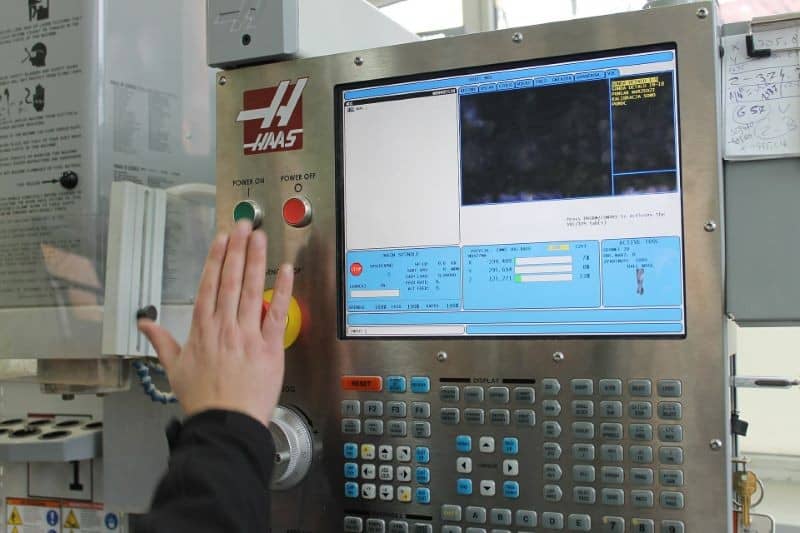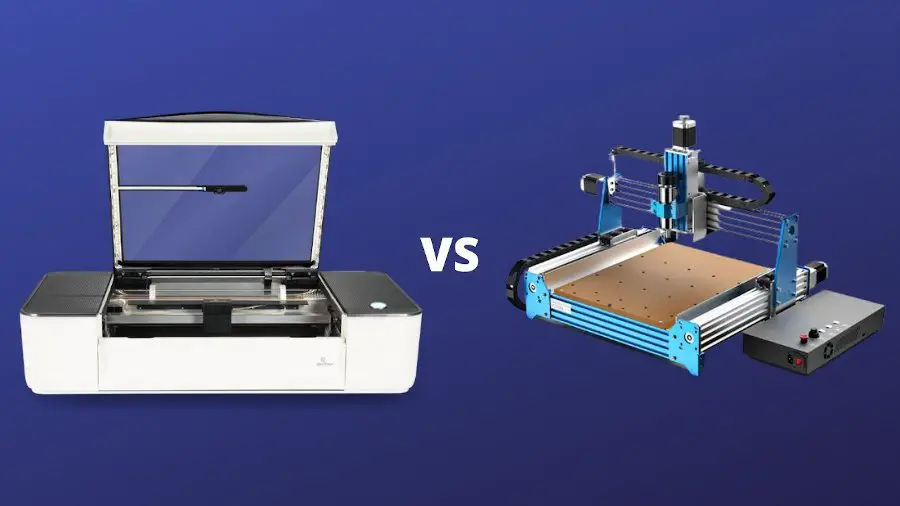Table of Contents
As technology advances, so do the tools available for manufacturing. One such tool is the CNC machine, a computer-controlled device that can cut and shape materials with precision. However, many people wonder if learning how to use one is a difficult task.
The answer is not a simple yes or no. While CNC machines have a learning curve, they are not necessarily hard to learn. With the right guidance, anyone can master the basics and start creating intricate designs in no time. In this article, we will explore the world of CNC machines and what it takes to become proficient in using them.
Are CNC Machines Hard to Learn?
CNC machines can be challenging to learn, especially for beginners. However, with proper training and practice, anyone can master the art of operating a CNC machine. The learning curve depends on the complexity of the machine and the operator’s prior knowledge of programming and machining. It’s essential to have a clear understanding of the machine’s functions and capabilities, as well as the software used to program it. With time and dedication, learning to operate a CNC machine becomes easier and more intuitive.
Are CNC Machines Hard to Learn?
CNC machines are one of the most innovative and advanced technologies in the manufacturing industry. CNC machines use computer numerical control for the automation of various machines and tools, making it possible to produce highly accurate and complex parts. However, many people wonder if CNC machines are hard to learn or not. In this article, we will explore whether or not CNC machines are difficult to learn, and what factors can affect the learning process.
What are CNC Machines?
CNC machines are computer-controlled machines that use software programs to automate and control various machining tools. These machines can be used to produce complex parts quickly and accurately, making them essential in the manufacturing industry. CNC machines can be used for various applications, including milling, drilling, turning, and grinding. The main advantage of CNC machines is that they can produce parts with high precision and accuracy, which is not possible with traditional machining methods.
Learning how to use CNC machines can be challenging, especially for beginners. However, the learning process can be made easier by breaking it down into smaller parts. The first step in learning how to use CNC machines is to understand the basics of programming and how to use the software programs that control the machines. Once you have a basic understanding of programming, you can move on to learning how to operate the machine and how to program it for different applications.
Factors that Affect the Learning Process
Several factors can affect the learning process when it comes to using CNC machines. Some of these factors include the complexity of the machine, the level of experience of the operator, the type of machine, and the software used to control the machine.
The complexity of the machine is one of the most significant factors that can affect the learning process. Some CNC machines are more complex than others, and it may take longer to learn how to use them. The level of experience of the operator is also crucial. Experienced operators may find it easier to learn how to use CNC machines, while beginners may take longer to get the hang of it.
The type of machine can also affect the learning process. For example, a milling machine may be easier to learn than a lathe machine, as milling machines are more commonly used in the industry. Finally, the software used to control the machine can also affect the learning process. Some software programs are more user-friendly than others, and it may take longer to learn how to use more complex software.
Benefits of Using CNC Machines
Despite the challenges that come with learning how to use CNC machines, there are many benefits to using them in the manufacturing industry. Some of the most significant benefits include increased productivity, improved accuracy and quality, and reduced costs.
CNC machines can produce parts with high accuracy and precision, which is not possible with traditional machining methods. This means that the quality of the parts produced is much higher, which can lead to fewer errors and defects. Additionally, CNC machines can produce parts much faster than traditional machining methods, which can significantly improve productivity.
Using CNC machines can also help to reduce costs. Traditional machining methods require a lot of manual labor, which can be time-consuming and expensive. With CNC machines, much of the work is automated, which can help to reduce labor costs. Additionally, CNC machines can produce parts with less waste, which can help to reduce material costs.
CNC Machines Vs. Traditional Machining Methods
When it comes to choosing between CNC machines and traditional machining methods, there are several factors to consider. Traditional machining methods are often less expensive to set up and operate, but they are not as accurate or precise as CNC machines. Additionally, traditional machining methods require more manual labor, which can be time-consuming and expensive.
CNC machines, on the other hand, are more expensive to set up and operate, but they offer higher accuracy and precision. Additionally, CNC machines can produce parts much faster than traditional machining methods, which can significantly improve productivity.
In conclusion, learning how to use CNC machines can be challenging, but the benefits of using them in the manufacturing industry are significant. By breaking down the learning process into smaller parts and considering the factors that can affect the learning process, operators can become proficient in using CNC machines. Additionally, the benefits of using CNC machines, such as increased productivity, improved accuracy and quality, and reduced costs, make them an excellent investment for any manufacturing business.
Frequently Asked Questions
Question: Are CNC Machines Hard to Learn?
Learning CNC machines can be intimidating for beginners or those who are not technically inclined, but it’s not impossible. With the right training and resources, anyone can learn how to operate a CNC machine.
While the learning curve may be steep, it’s important to remember that CNC machines are designed to make manufacturing more efficient and accurate. Therefore, the effort put into learning the machine can result in a significant increase in productivity and quality of output.
Question: What Skills are Required to Operate a CNC Machine?
Basic computer skills are required to operate a CNC machine, as most machines are controlled by computer software. Familiarity with technical drawings and measurements is also important to ensure accurate production.
Additionally, a good understanding of mathematics and problem-solving skills are necessary for troubleshooting and optimizing machine performance. Mechanical aptitude and attention to detail help operators to identify and fix issues before they become major problems.
Question: How Long Does it Take to Learn How to Operate a CNC Machine?
The length of time it takes to learn how to operate a CNC machine varies depending on the individual and the complexity of the machine. However, basic operation can usually be learned within a few weeks of training.
Mastering the machine and becoming proficient in programming and troubleshooting can take several months to a year or more, depending on the level of experience and dedication of the operator.
Question: How Can I Learn How to Operate a CNC Machine?
There are several ways to learn how to operate a CNC machine. Many vocational schools and community colleges offer courses in CNC machining and programming. Some manufacturers also offer on-the-job training for their specific machines.
Online resources, such as video tutorials and forums, can also be a valuable tool for learning about CNC machines. It’s important to choose a reputable source of information and to supplement any online learning with hands-on experience.
Question: Are CNC Machines Used in Small-Scale Production?
Yes, CNC machines can be used in small-scale production. In fact, they are often preferred for small-scale production because they offer high precision and accuracy, allowing for consistent results.
CNC machines can be programmed to produce a variety of parts in small quantities, making them ideal for custom or specialized products. Additionally, the automation of CNC machines can reduce labor costs and increase productivity, making them a cost-effective option for small-scale production.
In conclusion, learning how to operate a CNC machine may seem daunting at first, but with dedication and practice, anyone can become proficient in its use. The key is to start with the basics and gradually build upon that knowledge. A strong foundation in math and computer skills is also helpful in understanding the technical aspects of CNC machines.
Furthermore, there are many resources available for those who want to learn more about CNC machines, including online tutorials, training programs, and hands-on workshops. Taking advantage of these resources can significantly shorten the learning curve and help individuals gain confidence in using CNC machines.
In the end, the question of whether CNC machines are hard to learn depends on the individual’s willingness to put in the time and effort required to master this valuable technology. With the right mindset and resources, anyone can become proficient in operating CNC machines and unlock a world of possibilities in manufacturing and beyond.
Request a quote today!
[contact-form-7 id="1578" title="Contact form"]
Please compress the file into a ZIP or RAR file before uploading. Alternatively, send through your RFQ by email.
enquires@unitymanufacture.com





